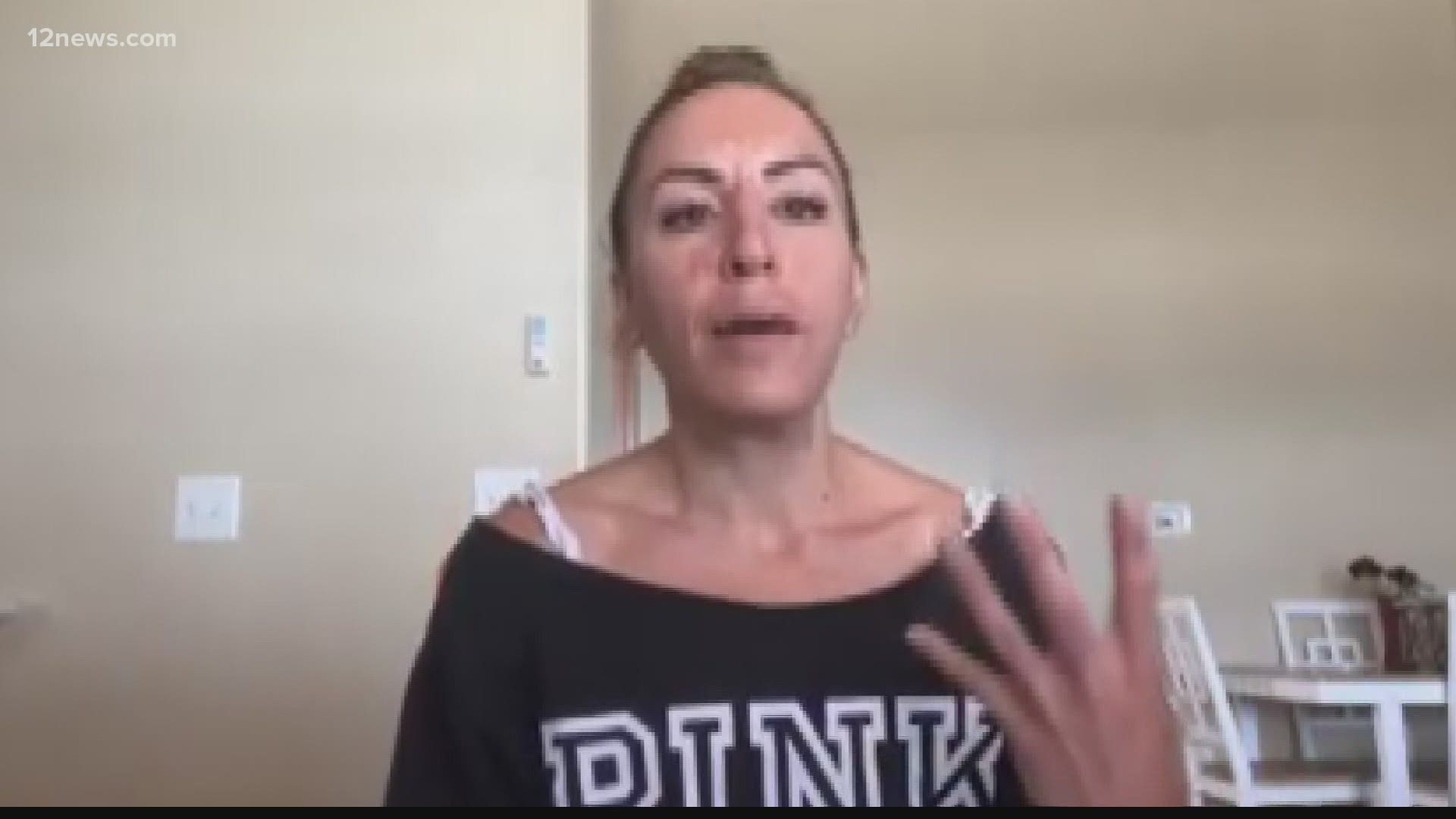MESA, Ariz. — Eating disorders are a heartbreaking topic with an increasing number of people suffering.
The COVID-19 crisis has only made the statistics more startling, with some doctors calling it the “second pandemic.”
A Mesa mom of four spoke out about what the battle behind an eating disorder is really like.
"It started when I was maybe 13. The negative self-talk started way earlier than that,” said Jennifer Corrigan, a full-time working, single mom of four. She opened up about a personal battle.
“I learned about purging your food, and that was an easy way to get it out," she said.
Corrigan developed an eating disorder to try to maintain her weight.
"I got hooked,” she said. "A little bit of anorexia in there, mainly binging and purging."
This past year hasn’t helped.
"With the pandemic, it ended up rearing its ugly head again," Corrigan said.
Sadly, Corrigan is far from alone. Since the start of the pandemic, the National Eating Disorders Association reported a more than 53% increase in call volume to its helpline. More than a third of those are from kids between the ages of 13 and 17 years old.
"This past year there has been just sort of an uptick in everything, any mental health issue," said Janine Faux, a licensed associate counselor with Infinite Healing and Wellness in Phoenix.
She’s seen an increase in calls for counseling.
"The brain and the body just wants to go real simple, 'Well I'll control my intake,’" she said.
Faux says a number of things can trigger an eating disorder including big life changes or traumatic events. And she said that the signs can be deceiving.
"It kind of gives you that false sense that you're in control, and then it can really lead to a dangerous place," Faux said.
In Corrigan's case?
"It is very scary, and it just envelops you, it just takes you over," Corrigan said.
She was headed down a path of destruction.
"My face was bloated, I'm still missing teeth, I'm in the works of getting them fixed,” she said. “I wasn't able to swallow for months."
Her health was deteriorating.
“There was no stopping it without help,” she said. “I had to go into treatment twice for it."
Eventually, Corrigan found the one thing that helped her break free from it.
“Shining light on it, so it wasn't in the dark,” she said.
Holding back tears, Corrigan explained that she has come a long way with the help of her faith, loved ones and treatment.
“To wake up excited to live, is beyond anything I could've ever like really imagined,” Corrigan said. "It's amazing.”
Now, she is spreading a message to anyone out there struggling.
"There is hope and healing is totally possible. 100%," she said.
She is proof that there can be hope for a better tomorrow.
If your child has an excessive need to exercise or if skipping meals, those could be red flags that they could be developing an eating disorder.
If you or someone you know is struggling, here are some resources to help.
Up to Speed
Catch up on the latest news and stories on the 12 News YouTube channel. Subscribe today!

